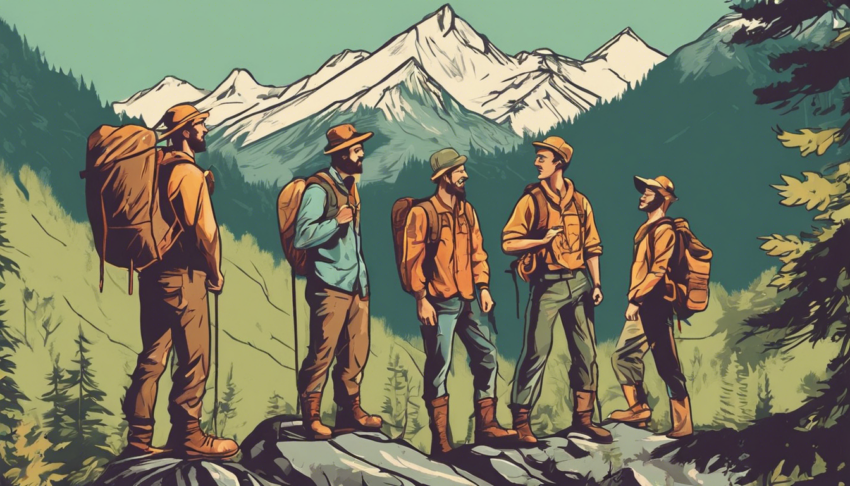In today’s fast-paced world, the allure of adventure often gets tangled up with the latest survival gear, pushing the narrative of masculinity to one that glorifies rugged individualism.
Advertisements tantalize men with images of solitary figures conquering vast landscapes, armed with elaborate gadgets that promise safety and success against nature’s challenges.
However, this portrayal not only undermines the essence of true adventure but also promotes a toxic view of masculinity.
In this article, we will explore the pitfalls of advertisement-driven masculinity, and argue for a shift towards a more community-oriented approach to outdoor experiences.
Emphasizing human connections and cooperative efforts, we will delve into how these values can lead to more meaningful adventures and foster a sustainable relationship with our environment.
Key Takeaways
- The rise of advertisement-driven masculinity fosters competition over collaboration among men in outdoor activities.
- Survival and connection with nature are rooted in community, not expensive gear or individualism.
- Addressing climate change requires cooperative efforts rather than relying on commercial survival tools.
The Dangers of Advertisement-Driven Masculinity
## The Dangers of Advertisement-Driven Masculinity
In an age dominated by marketing campaigns that glorify hypermasculinity, it’s crucial to examine the implications of advertisement-driven masculinity, particularly within outdoor and survival gear promotions.
Often, these advertisements promote the image of men as solitary hunters or fierce warriors, equipped with overly complex, flashy survival gear, including tactical hatchets and multi-tools that prioritize style over substance.
This portrayal reflects a toxic view of masculinity that breeds competition rather than cooperation.
The reality of camping and outdoor experiences should center around shared enjoyment and collective learning, rather than equipping oneself for a battle against the wilderness.
History shows that survival has always depended on community engagement—conniving with one another for shared goals, whether in food gathering or shelter building.
By highlighting stories of communities that have thrived together rather than through individualism, we can shift the narrative away from the lone warrior trope.
The promotion of such rugged individualism not only compromises the spirit of outdoor activities but also fosters a destructive mindset towards our environment.
This mindset has roots in capitalism and colonial expansion, driving notions of exploitation that lead to significant environmental degradation.
Advocating for preservation through community involvement with nature, rather than commodifying it, allows us to re-establish a sense of responsibility towards public lands.
As we increasingly confront climate change, the path forward necessitates a focus on cooperation and relationship-building rather than investing in ineffective survival tools.
Ultimately, a true appreciation of nature hinges upon valuing connection over competition—something we must remember as we navigate both the wilderness and our roles within it.
Building Community for Sustainable Outdoor Experiences
In order to foster a more sustainable outdoor culture, it’s essential to prioritize collaboration and education within our communities.
Engaging in outdoor activities, such as camping or hiking, should not only be about personal survival skills but also about sharing knowledge and experiences with others.
This approach encourages individuals to recognize the value of collective efforts, where each person brings unique insights and strengths to the table.
For instance, establishing local outdoor groups can provide a platform for members to share expertise in areas like foraging, navigation, and camping techniques.
As participants learn from one another, they not only build camaraderie but also cultivate a deeper appreciation for the environment.
Furthermore, community-driven initiatives can help organize clean-up events, tree planting, and conservation projects, ultimately reinforcing the connection to nature while promoting its preservation.
By fostering such a spirit of cooperation, we are taking significant steps towards not only enriching our outdoor experiences but also ensuring the health and longevity of the ecosystems we cherish.
Support Us: Check out our recommended products on Amazon.


